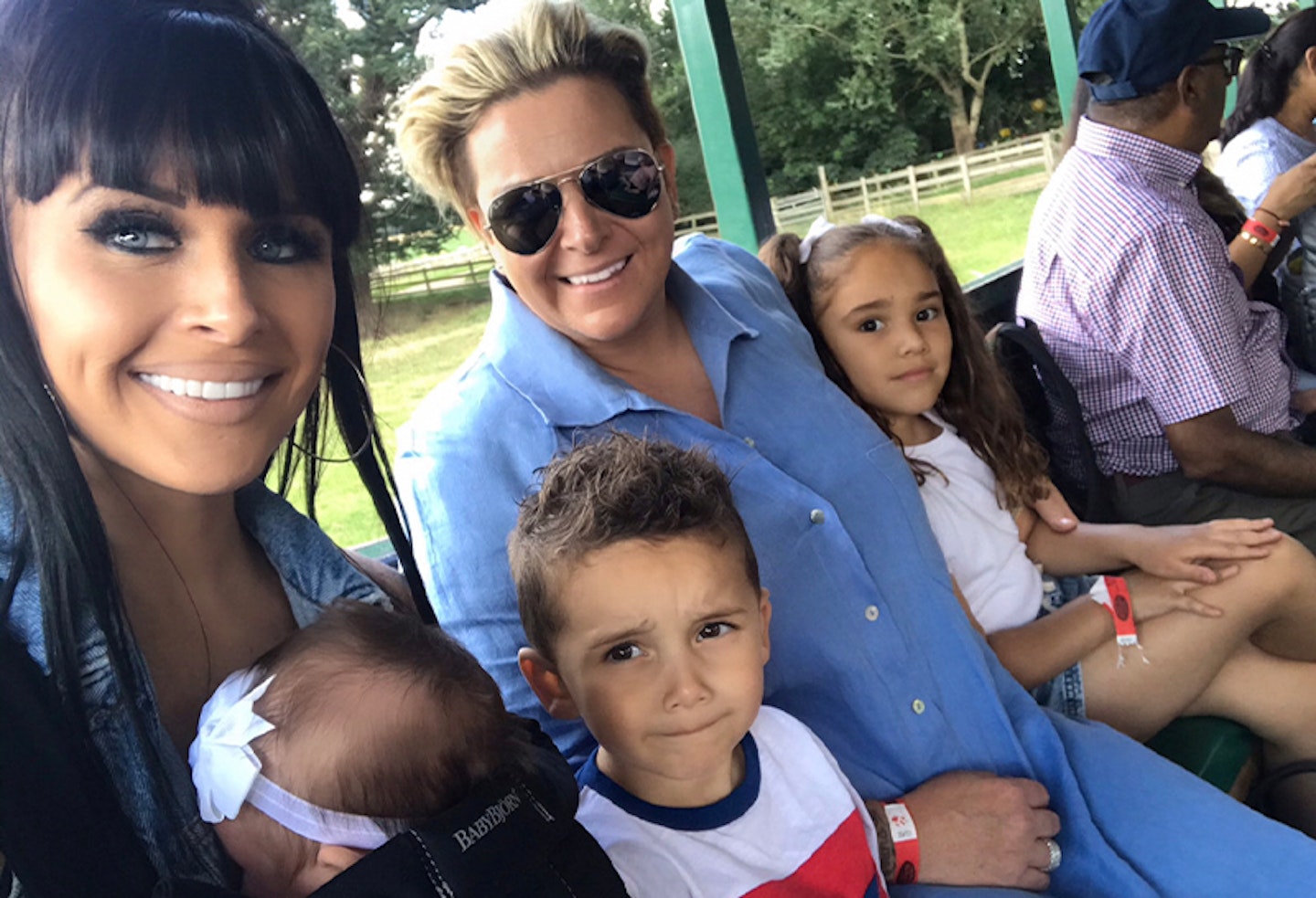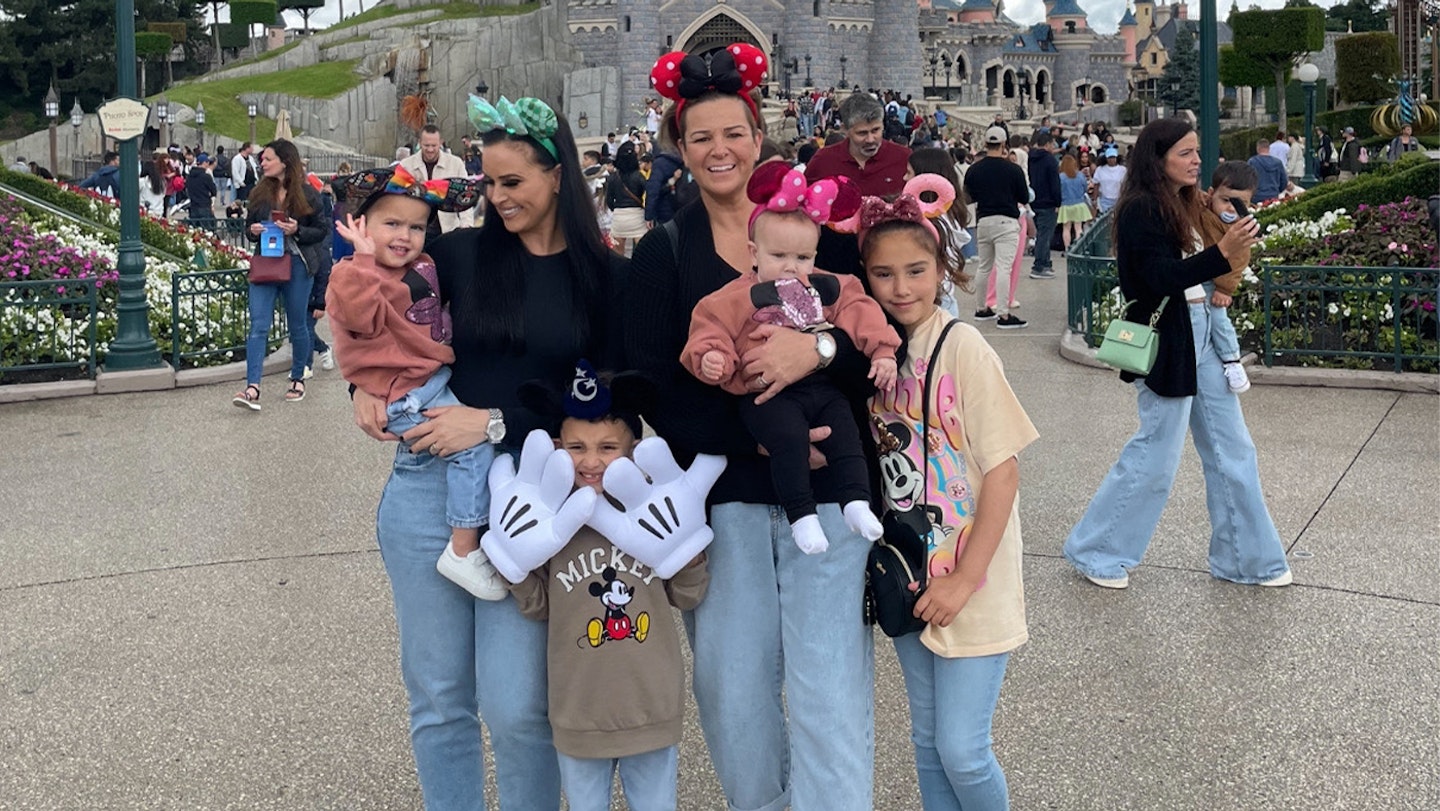The pathway to parenthood is never easy for couples who cannot conceive naturally without help, and if you're a same-sex couple, the journey is even more challenging.
In 2021, lesbian couple and influencers Megan and Whitney Bacon-Evans launched a judicial review against their NHS Clinical Commissioning Group for its "discriminatory" fertility policy. Estimating that the true cost of having a child as a female same-sex couple, or as a single woman, is between £30,000 and £50,000 once the private treatment, cost of sperm and storage are factored in.
Managing to crowdfund more than £10,000 towards their legal fees, they announced they had withdrawn their legal action, saying NHS Frimley Integrated Care Board (ICB) would be addressing the inequality. However, although Frimley agreed to review their policy, they have yet to review their policy- they only agreed to ‘review’ the policy and two years later still haven’t made it equitable. Megan and Whitney hope that eventually, the outcome will be for all prospective parents to have access to six rounds of funded IUI, and then to three rounds of IVF if that is unsuccessful to make the process fairer for all families.
The current advice for same-sex couples wanting a family is to check with your GP or local integrated care board to find out about what might be available to you. Having said that, there is currently only four Integrated Care Boards out of 42 providing equitable access to NHS fertility funding provision.
We caught up with Laura-Rose from The LGBT Mummies organisation who have been fighting for NHS Funding for same sex couples since 2018, to find out more about her and her wife Stacey's journey to motherhood.
Laura-Rose and Stacey's story
I always knew I wanted to be a mum, so when I met my wife, Stacey, I was so happy she felt the same way. Back then, there was little to no support for LGBT+ people who wanted to start a family – the information was incredibly disparate or out of date.
We decided that we would both like to carry if we could, so we went for fertility treatment through a private clinic, CRGH. As my wife was older and had PCOS, she went first with IUI as it was a less costly and invasive option.

It took us three failed cycles, one miscarriage and then on the fifth attempt we fell pregnant. A few years later, we decided to try for a sibling, and I fell pregnant on the IUI second attempt. Several years later when we decided to have a third child, we mistakenly assumed because I had fallen pregnant so quickly before, it would happen again for me.
However, after three failed IUI’s we discovered that my ovarian reserve had diminished by half. Devastated, we decided to move to IVF due to my age, declining fertility and the fact we only had two vials of sperm left. Then lockdown hit and it was cancelled.
When the clinics opened, the first round of IVF failed, but we luckily fell pregnant with a frozen IVF transfer.
In 2022, we began our fourth and final journey to motherhood which resulted in Stacey moving to IVF and having our fourth child, a little girl, in 2023.
We know we’re blessed to have our four miracles, but the path to parenthood for us and many others hasn’t always been so smooth. We have never been eligible for NHS funding, and we have had to pay privately for treatment - we have now spent over £60k having our children. And as LGBT+ people, we face a disproportionate amount of discrimination and lack of support when it comes to becoming parents.

Laura-Rose (left) and Stacey (right) pictured with three of their four children.
For example, in the UK as a same sex couple, dependent on where you live, you may not have access to NHS funding and even if you do, you may have to pay privately for between 6-12 rounds of private treatment before you’re eligible. However, our heterosexual counterparts only have to try to conceive for two years before they may be eligible for free treatment.
If you aren’t eligible and you cannot afford private treatment, but you (or your partner if you have one) are desperate to carry a baby of your own, the only option is to find a known donor and conceive at home. While many families do this happily and successfully because it is their preferred choice of starting a family, others are forced down this route, often because it’s the only option they have left.
If you are not married, it means that only the person carrying would be on the birth certificate and the donor is the other legal parent. You then have to apply for ‘second parent adoption’ which takes time and can be costly. In some extreme cases, this has resulted in the donor claiming rights to the child, including access (when the arrangements were that he was ‘donating’), which can be detrimental to the child and all parties involved. Often parent alienation can happen, meaning the other parent can lose access, and the law does not recognise them as parents. So, the law can be discriminative of our journeys too.
The same discrimination can be said for general healthcare. The heteronormative ‘mum’ and ‘dad’ forms, red baby book, imagery and resources - the systems aren’t built to support us. It doesn’t reflect our people - there are no two mum images, or trans parents pictured. And when was the last time you saw a co-parenting family, or poly family on a poster? And this is the same for those adopting or fostering - the questions and lack of understanding follows.
We’re invisible and there is no ‘tick box’ for us. We are consistently ‘Othered’.
Then when it comes to finally getting pregnant and attending any appointments, the discrimination and lack of support and understanding continues. Unfortunately, there is no ‘mandated’ education in who we are, our paths to parenthood, or how to support us for healthcare professionals - something we are working to change.
When you have attended a midwife appointment as the ‘non-Biological’ mother and have been asked for the fifth time if you are your partners ‘sister’ or her ‘mum’ or told ‘only dads allowed’ on the ward, it can be waning or even traumatic for some. We know of a trans man, ushered out of waiting rooms because the receptionist scolded that ‘this room is for women!’ without checking first.
There are people that have been misgendered, pronouns not asked, or ‘dead names’ used. Doctors that have refused to deal with a non-biological parent because ‘I don’t want you, I want the REAL mum’. Many are not educated in how to support us, and discrimination can occur. The consistently having to ‘out’ ourselves at every turn doesn’t just stay within a healthcare setting- this continues into the playground and becomes part of our children’s school life, having to explain ourselves and not seeing our families represented in books and education.
These are OUR experiences. Our lives. These are the micro-aggressions and discrimination many of us experience throughout our journey.
Now that’s not to say it happens all the time to everyone - many of us have had great experiences and there are professionals who support us well or are aware they need educating and want to do better. Some even go out and pay for their own training, something that shouldn’t happen.
Healthcare professionals and teachers need support in their roles too, which in turn will result in better staff retention. But it’s not all doom and gloom. Luckily the tide is turning and change is coming. The NHS specifically are listening and looking at how they can ensure all staff are trained to support us better, although we know this may take time.
The Government are also trying to improve diversity in education, to ensure our families are taught about and supported. Yet as a community, our paths to parenthood are still full of twists, turns and dead ends, fraught with a lack of education and discrimination.

This is why we created our organisation The LGBT Mummies Organisation, to ‘educate, share, celebrate’ LGBT+ women and people globally on the path to parenthood. We work hard to provide a safe haven and community, where we can meet others with shared experiences through our support groups and ‘usualise’ our families in society, while creating an inclusive future for our children.
We are passionate about ensuring others don’t go through the confusion, discrimination and lack of educated support we went through, and the work we are doing we hope will do just that. We feel every person has the human right to have a family by their first, chosen route in a safe and supported way. And that is something we will continue to fight for so that our communities parenting experiences are positive, equal and supported, just like our heterosexual counterparts.
LGBT Mummies along with Stonewall and other organisations are still fighting for “equal and equitable” access to fertility funding for same sex couples and the rest of the LGBTQ+ community who have been left out.
Lorna White is the Senior Digital Writer for Mother&Baby. After running the Yours magazine website, specialising in content about caring for kids and grandchildren, Lorna brought her expertise to Mother&Baby in 2020. She has a keen interest in a range of topics from potty training and nutrition to baby names and early development and has a wide range of experienced medical experts and professionals at her fingertips. In her spare time, she enjoys spending time with her two young sisters, dog walking and enjoying the outdoors with her family.
